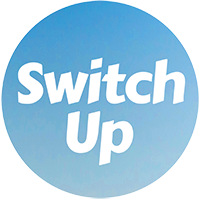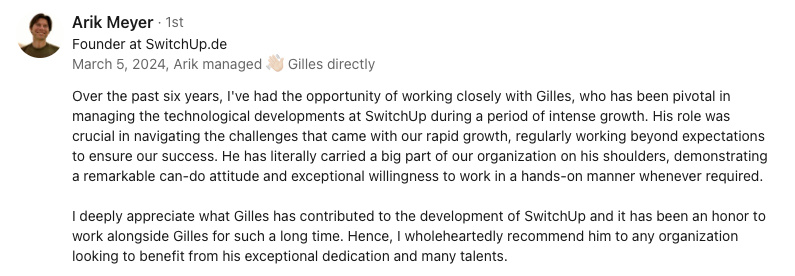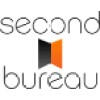Abstract:
The shift towards the gig economy marks a significant transformation in the way we view employment, offering flexibility and independence not seen in traditional roles. This article explores how freelancing platforms have become the backbone of this new work paradigm, enabling millions worldwide to pursue careers as independent contractors. We'll examine the benefits, such as enhanced work-life balance and the ability to choose projects that align with one's skills and interests. Additionally, we'll address the challenges gig workers face, including the lack of job security and benefits. This transformation suggests a future where work is increasingly decentralized, and freelancing platforms play a crucial role in matching talent with opportunities. As this trend continues to grow, understanding the dynamics of the gig economy will be essential for professionals looking to navigate this new terrain.
Introduction to the gig economy
The gig economy represents a significant transformation from traditional employment, reshaping how people approach work in our modern society. This shift hinges on key attributes like increased flexibility and a higher degree of independence. Individuals today are increasingly valuing the ability to choose when and where they work, facilitating a more personalized approach to balancing professional and personal life.
Unlike conventional roles where employees are expected to adhere to fixed schedules and long-term commitments, gig work offers a dynamic alternative. Freelancers and independent contractors can now engage in various short-term tasks or projects, providing a level of freedom and autonomy that traditional jobs often lack. This new work model is not just transforming individual lives; it’s fundamentally shifting the way businesses operate and how talent is utilized.
The proliferation of freelancing platforms has further fueled this evolution, enabling a seamless connection between talent seekers and skilled workers across the globe. As we continue to witness this transformation, it’s evident that the gig economy is not just a trend but a fundamental change in the way work is perceived and executed.
Role of freelancing platforms
Freelancing platforms have become integral to the way independent contractors connect with potential projects and clients. These digital hubs serve as a bridge, allowing skilled workers to showcase their talents to global audiences and enabling businesses to find the right expertise with minimal effort.
I have seen firsthand how these platforms revolutionize access to a wider pool of opportunities. By streamlining the process of finding and securing work, platforms like Upwork, Freelancer, and Fiverr have empowered millions to adopt freelancing as a viable career path. They provide a safe and organized marketplace where individuals can present their portfolios, bid on projects, and communicate directly with clients.
The beauty of these platforms lies in their inclusivity. They cater to a variety of skill sets, from graphic design and writing to software development and consultancy. By offering tools and resources to manage tasks, payments, and client relationships, they make it easier for freelancers to operate independently without the administrative burdens typically associated with running a business.
Moreover, these platforms have fostered a sense of community among freelancers. They offer forums, blogs, and webinars where independent professionals can share experiences, seek advice, and stay updated on industry trends. This sense of belonging is crucial in a field that often lacks the traditional support structures found in conventional workplaces.
In essence, freelancing platforms have not only democratized access to work but have also redefined what it means to have a career. They have been game-changers, allowing flexibility, autonomy, and a global reach that were unthinkable just a few years ago.
Benefits of the gig economy
The gig economy brings numerous advantages to workers, transforming not just how we work but also enhancing the quality of our lives. One of the most compelling benefits is the improved work-life balance it offers. In my experience, being able to choose work hours that fit around personal commitments can be life-changing. Workers can manage their time to attend family events, take breaks when needed, or even travel while still maintaining their professional responsibilities.
Another significant upside is the freedom to pick projects that align with one’s skills and interests. This means that individuals can focus on tasks they are passionate about rather than being confined to roles that might not fully utilize their talents. For instance, a graphic designer might choose to work on a variety of creative projects, ranging from logo design to creating visual content for social media. This diversity can lead to a more satisfying and enriching work experience.
Moreover, being able to select projects increases job satisfaction, as people feel more engaged and valued in their work. This autonomy can boost motivation and lead to higher-quality outcomes, benefitting both the gig worker and the client. Personally, I've seen individuals thrive when given the opportunity to pursue work that genuinely excites them.
In addition, the gig economy often provides opportunities for continual learning and skill development. Tackling different projects requires adapting and learning new tools or techniques. This ongoing growth can enhance one's professional portfolio and make them more competitive in the marketplace.
Lastly, the financial potential in the gig economy is worth mentioning. With the right strategy and portfolio, skilled freelancers can command higher rates than they might earn in traditional employment. They have the potential to generate multiple income streams and diversify their revenue sources, adding financial stability and independence.
Overall, the flexibility, autonomy, and opportunities for personal and professional growth make the gig economy an attractive option for many. It's a fresh approach to work that aligns well with the modern lifestyle, offering perks that were hard to come by in a conventional job setting.
Challenges faced by gig workers
Although the gig economy offers numerous perks, it's crucial to recognize the hurdles that come with this flexible work model. One of the most pressing concerns is the lack of job security. Without long-term contracts, freelancers constantly navigate the uncertainty of where their next paycheck will come from. This unpredictability requires diligent planning and often causes significant stress.
Another challenge is the absence of traditional employment benefits. Unlike conventional employees, gig workers typically don't have access to benefits such as health insurance, paid leave, or retirement plans. This gap places the onus on freelancers to secure their own safety nets, which can be both expensive and time-consuming. A gig worker I spoke with mentioned how these additional responsibilities can feel overwhelming, likening it to "running a one-person business."
The inconsistency of income also stands out as a significant issue. The flow of work in the gig economy can be erratic; one month might be highly lucrative, while the next could be surprisingly sparse. This financial instability requires freelancers to develop robust budgeting and saving practices to cushion themselves during lean periods.
Moreover, the competitive nature of freelancing platforms can exacerbate these challenges. With a global pool of talent vying for the same projects, securing well-paying gigs can be arduous. This intense competition often forces workers to lower their rates or take on projects that don't fully utilize their skills, leading to burnout and dissatisfaction.
Finally, gig workers often miss out on the camaraderie and support systems found in traditional workplaces. The solitary nature of freelancing can lead to feelings of isolation. Yet, many find ways to combat this through online communities and networking events.
In summary, the gig economy's flexibility and autonomy come at the cost of significant challenges, including job insecurity, lack of benefits, and income unpredictability. While these issues are real and substantial, they're part of the trade-offs that individuals make for the freedom to work on their own terms.
The future of decentralized work
Looking ahead, the shift towards decentralized work shows no signs of slowing down. As technology advances and societal values evolve, more people and businesses will embrace the possibilities that the gig economy offers. Freelancing platforms will continue to play a pivotal role in this transition, acting as the linchpin connecting talented individuals with those seeking their expertise.
I foresee a future where these platforms will become even more sophisticated, leveraging artificial intelligence and machine learning to match gig workers with the most suitable projects. This technology will not only streamline the hiring process but also provide valuable insights into market trends, enabling freelancers to make informed decisions about their careers.
Moreover, as decentralized work becomes more mainstream, I believe we will see the development of new support systems and tools tailored specifically for gig workers. These initiatives could range from offering access to affordable benefits packages, like health insurance and retirement plans, to providing resources for continuous skill development. The goal will be to bridge the gap between traditional employment benefits and the needs of independent contractors.
Another exciting prospect is the potential for global collaboration. With the help of advanced communication tools and freelancing platforms, people from different corners of the world can seamlessly work together on projects, bringing diverse perspectives and innovative solutions to the table. This interconnectedness will redefine teamwork and pave the way for groundbreaking achievements in various fields.
In summary, the future of decentralized work is bright and full of potential. As freelancing platforms evolve and adapt to meet the needs of a changing workforce, they will remain essential in enabling flexible, autonomous work. For those willing to embrace this new way of working, the opportunities are boundless and incredibly exciting.
Essential dynamics of the gig economy
Understanding the dynamics of the gig economy is crucial for professionals aiming to thrive in this new work paradigm. To navigate this trend effectively, aspiring gig workers and seasoned freelancers alike need to stay informed and adaptable. Let’s explore some key considerations and strategies for success.
Staying Informed
One of the first steps is staying updated on market trends and evolving demands. By keeping an eye on industry shifts and opportunities, you can better align your skills with what’s in demand. This can be achieved through regular reading of industry blogs, participating in webinars, and engaging in professional communities.
Embracing Flexibility
Flexibility is a cornerstone of gig work. Being open to different types of projects and clients can greatly enhance your chances of success. Flexibility also means being willing to learn new skills and adapt to various working environments. This adaptability can make you more attractive to a broader range of clients.
Building a Strong Portfolio
A well-curated portfolio is essential in the gig economy. Showcasing your best work and highlighting versatile skills can make a significant difference. Consider using online platforms to create a professional and appealing portfolio that prospective clients can easily access and evaluate.
Networking
Networking plays a crucial role in building a successful gig career. Connecting with other professionals in your field can lead to collaborations, referrals, and new opportunities. Attend industry events, join online forums, and actively engage in social media groups to expand your professional network.
Managing Finances
Effective financial management is vital. The unpredictable nature of gig work demands a robust budgeting strategy. Set aside savings during good months to cushion against slower periods. Keeping track of your income and expenses meticulously can also help in tax planning and ensuring financial stability.
Prioritizing Self-Care
Given the solitary nature of much gig work, it's easy to overlook self-care. Make a conscious effort to maintain a healthy work-life balance. Take breaks, exercise, and ensure that you're not overextending yourself. A well-rested mind can significantly enhance productivity and creativity.
By staying informed, being flexible, building a compelling portfolio, networking, managing finances prudently, and prioritizing self-care, you can navigate the gig economy with confidence and achieve sustained success. These strategies can empower you to embrace this dynamic work style and make the most of its potential benefits.
Wrapping things up
We've explored the transformative impact of the gig economy, highlighting its hallmark features of flexibility and independence. This shift marks a significant departure from traditional employment, offering individuals the opportunity to tailor their work lives in ways that were previously unimaginable. The freedom to choose projects, balance personal and professional commitments, and connect with global clients are just a few of the revolutionary changes redefining work structures.
However, it's important to remember that this newfound autonomy comes with challenges. Job insecurity, lack of traditional benefits, income instability, and feelings of isolation are real hurdles that gig workers must navigate. Addressing these issues requires a combination of personal resilience, strategic planning, and the evolution of support systems tailored to independent contractors.
Looking ahead, the gig economy promises even more opportunities as technology continues to advance, creating smarter platforms and tools to support freelancers. The potential for enhanced global collaboration and innovative solutions is immense, setting the stage for a more interconnected and dynamic work environment.
As we navigate this new world of work, I encourage everyone to consider how they can embrace the benefits of gig work while proactively addressing its challenges. Could we rethink the way we balance work and life, seeking more meaningful and fulfilling professional experiences? The revolution is here, and it’s up to us to shape it for a better, more flexible future.
You might be interested by these articles:
- Mastering Freelance Economy Dynamics
- Thriving in the Gig Economy Landscape
- Integrating Freelancers for Startup Success
See also:
- Gilles Crofils: Skills, Industries and Markets
- Demystifying Machine Learning Techniques
- Cybersecurity essentials for startups strengthening defenses without breaking the bank
- Turning privacy into a startup's competitive edge
- AI's Revolutionary Role in Modern Medicine
- Next-Gen AgriRobots Transforming Farming





